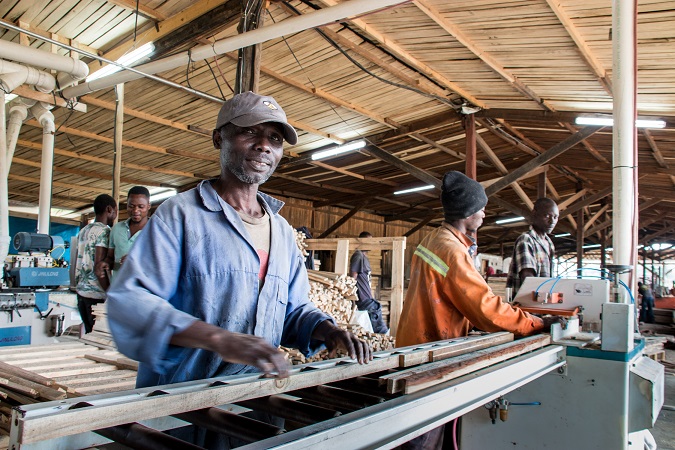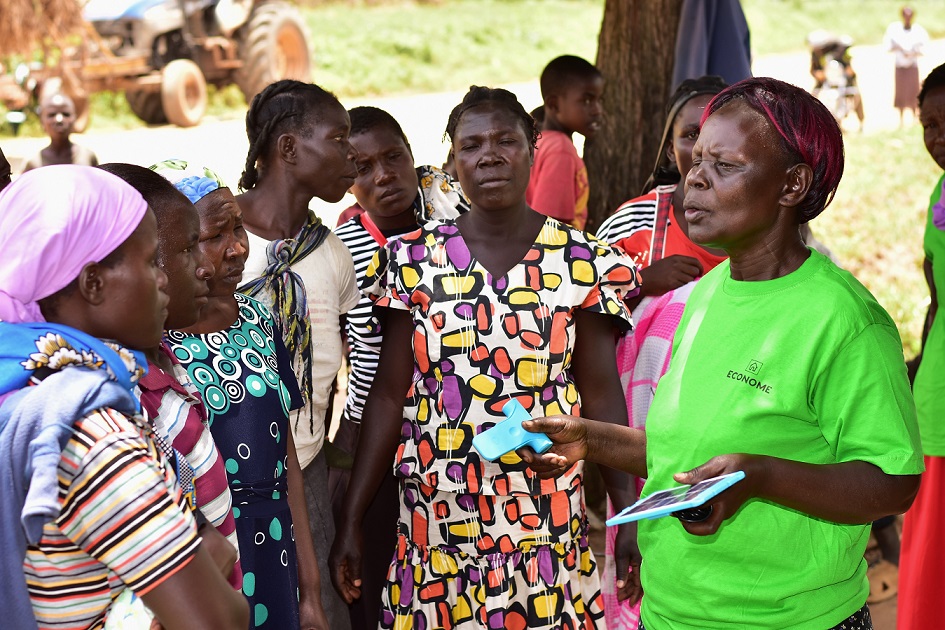What is Inclusive Business?
Inclusive businesses provide goods, services, and livelihoods on a commercially viable basis, either at scale or scalable, to people living at the base of the pyramid, making them part of the value chain of companies as suppliers, distributors, retailers, or customers. (G20)
In 2021, a group of leading global organisations concretised the definition above into four main features of Inclusive Business:
1. Engaging the base of the pyramid intentionally
The term ‘base of the pyramid’ (BoP) refers to poor and low-income individuals. It currently comprises about 4.5 billion people living on less than US $8 (purchasing power parity) per day. People at the base of the pyramid often lack income opportunities. Also, their access to relevant and affordable goods and services, like clean water, healthcare or electricity, is often limited.
An inclusive business purposefully integrates the BoP into its core business. It engages them as suppliers, distributors, retailers, workers, or customers in a manner that seeks to generate net positive social impact. Typically, they provide the BoP with improved income and livelihood opportunities or better access to relevant and affordable goods and services.
The inclusive business company Nature’s Nectar, for example, cooperates with smallholder honey farmers in Zambia. It provides them with training, modern beehives, and market access, leading to income increases of 20 to 30 per cent.
Download the Inclusive Business Features

© Nature's Nectar
2. Pursuing financial viability
Financial viability is the ability of an inclusive business to survive and compete over the long term in a manner that is self-sustaining. It covers its costs and meets the needs of its investors, employees, and other stakeholders.
Financial viability helps to ensure that the inclusive activity is underpinned by a functioning business model designed to be sustained over the long term. It also encourages the business to treat BoP stakeholders as business partners and/or valued customers, not as beneficiaries.
A financially viable business may be able to leverage multiple forms of capital to advance its work, including commercial, concessional, or purely philanthropic capital. This could also enable the business to reinvest profits and expand its engagement with the base of the pyramid.
LifeBank, for example, is an inclusive medical logistics company. Offering extra services to wealthier customers enables it to cross-subsidise blood and oxygen supplies to BoP markets.

3. Scaling the business
Scaling refers to the efficient growth of the business: Gains outweigh losses as the business adopts more efficient processes. Scaling is also the most effective and efficient way to increase social impact. Considering that the 4.5 billion people living at the base of the pyramid represent a $5 trillion global consumer market annually, the opportunity, but also the necessity to think big becomes apparent. The scaling potential of an inclusive business can also attract impact investors.
To scale, inclusive businesses often leverage digital technologies or enter partnerships. Last-mile distributor Econome Kenya, for example, is scaling its operations through a digital group sales model. In Tanzania, the agribusiness OBRI will cooperate with an NGO to triple the number of women smallholders reached.
Take our free self-learner course on Inclusive Business

4. Measuring and managing the impact on the base of the pyramid
Measuring and managing impact is key to promoting net-positive outcomes for the base of the pyramid.
Impact is a change in positive or negative outcomes for people or the planet. Impact measurement is the quantification of changes in outcomes for the BoP. Impact management, in contrast, is the process of mitigating the negative changes and maximizing positive changes for the BoP. Through this feature, inclusive businesses get an understanding of their impact on the base of the pyramid. This enables them to adapt their processes and business model accordingly.
The inclusive business Good Nature Agro, for example, uses a smartphone app to measure the income increase of smallholder farmers.

